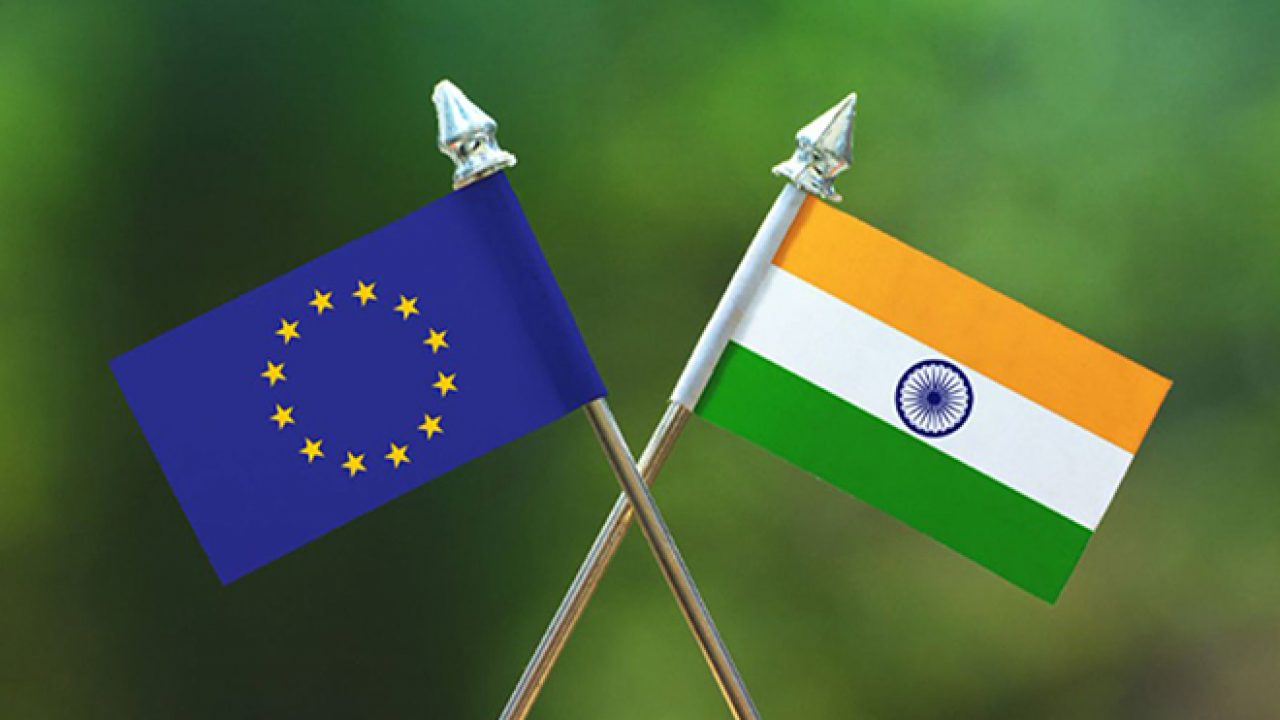2022 has been a significant year for India’s trade. Firstly, India’s merchandise exports touched $420 billion in 2021-22. This is far higher than the previous record of $330 billion achieved in 2018-19. Secondly, India is showing a proactive momentum towards negotiating and signing a plethora of free trade agreements (FTAs) with leading trade partners. In February, India signed an FTA with the UAE, the first such pact by New Delhi in over a decade. This was followed by an interim “early harvest” deal with Australia in April, while the ongoing India-UK trade deal negotiations are expected to be sealed by the yearend.
This year also marks 60 years of India-EU diplomatic relations. Trade and economic partnership between the two has grown rapidly and gained momentum over the past decade. Bilateral trade between the two surpassed US$116 billion in 2021-22, with a year-on-year growth of 43.5%. EU is India’s 3rd largest trade partner, accounting for almost 11% of Indian trade in 2021. India is EU’s 10th most important trading partner, accounting for just over 2% of EU trade in 2021; this relatively small share of overall EU trade in goods points to a large untapped potential. In the last decade, India’s exports to EU countries have grown at a faster pace than the country’s overall exports. EU and India initiated consultations for a free trade agreement in 2007, before the talks were suspended in 2013 due to difference in the scope and expectations from the deal. The relaunch of India-EU bilateral negotiations was decided by the India-EU Leaders’ Meeting in May 2021.
The first round of renewed negotiations for India-EU Trade and Investment Agreements concluded on 1 July 2022 and deliberated on three parallel tracks—trade, investment protection, and geographical indications. The focus was primarily on finding convergence and better understanding of each other’s sensitivities in order to achieve the ambitious goal of liberalising 94% of trade in goods. These talks could have a bearing on tariff-related matters in agriculture and industry. India’s successful sectors like textiles, pharmaceuticals and leather could benefit from these deliberations, which would also be keenly watched by representatives of the services and renewable energy sectors. In a first for India, the proposed FTA will include a chapter linking trade and sustainable development, which stresses on the need to enhance the contribution of such trade pacts in protecting climate, environment and labour rights.
Within the context of the ongoing India-EU trade agreement negotiations, three things are noteworthy. Firstly, India’s proactive approach to engage and negotiate FTAs with major trade partners is unprecedented. Previously, trade consultations were done at a snail’s pace with a lot of conservatism. This rejuvenation of a forward looking and positive approach towards FTAs is a step in the right direction, especially after its withdrawal from RCEP in 2019. Secondly, India and EU have shown understanding, flexibility and maturity towards each other’s interests and sensitivities under FTA consultations.
They have not led concerns on either side such as, movement of Indian professionals, high tariffs on EU agricultural produce, subsidies and limited access to its services exports become a hindrance in securing a trade deal. Rather they are stressing on pragmatism and complementarities of mutual trade benefits for both parties. Thirdly, this is an opportunity for India and EU to quickly forge their trade and investment partnership, particularly in the wake of the suspension of EU-China Comprehensive Investment Agreement (CAI) in May 2021. On the one hand, the EU would like to explore key markets for trade and investment, while for India it further cements its growing economic and trade ties with EU and help decouple their respective over-reliance on China’s trade amidst rising geopolitical tensions with the latter.
The proposed India-EU FTA will be much more arduous and comprehensive than any other trade deal concluded by New Delhi so far. The trade deal will help companies in the 27-member bloc to access the large Indian market and diversify their supply chains. India can use an EU-type agreement to initiate deeper domestic reforms and liberalization, thereby improving standards and processes, which will lead to overall competitiveness of our firms in the global marketplace. If negotiations are successful, it will provide India with experience and set templates of FTA negotiations which it could leverage for future trade deals with other countries. India is concurrently planning or in stages of negotiating FTAs with Canada, Israel, members of Gulf Co-operation Council (GCC), Russia-led Eurasian Economic Union (EAEU). Beyond that, it could act as a springboard for such and similar multiparty, complex and mega regional trade agreements between India and US, South America (Mercosur), Africa (under recently formed AfCFTA) and who knows, possibly even a Quad FTA.
Moving forward, the need of the hour is not just a broader but a much deeper India-Europe trade accord with focus shifting from tariff reductions to eliminating non-tariff barriers and creating a trade facilitation ecosystem between the two. Liberalising trade and investment will generate significant opportunities for growth in areas beyond trade in goods, to services particularly trade in banking and financial services, digital trade, intellectual property and public procurement. The second round of negotiations are expected to take place at Brussels in September. Needless to say, negotiations will be strenuous with several areas of divergent views; India and EU have to iron them out in a balanced and mutually beneficial way. They have set an ambitious timeline to conclude the FTA by the end of 2023. If successful, the deal is expected to double trade between India and the EU in the next five years. For India, a well-crafted trade agreement could help enhance its share in global trade and further its objective of becoming a $5-trillion economy.
Dr Mohit Anand is Professor of International Business and Strategy at EMLYON Business School, France. Rajesh Mehta is a leading consultant and columnist working on market entry, innovation and public policy.
Reinvent India-EU approach to free trade agreement
- Advertisement -

